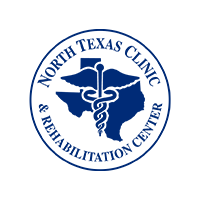Many women in their late 30s and 40s begin to notice changes in their body that don’t feel familiar, or particularly great, for that matter. These changes can be overwhelming and leave you wondering “what’s happening” and “what is perimenopause anyway?”
You’re not alone.
Perimenopause is a natural stage of life, but it can bring new challenges that are often confusing and worrisome. Even worse, many women aren’t educated about it or know what to talk about with their healthcare provider.
We can help. Find out what perimenopause is, why it happens, what the symptoms are, and what to do about it here.
What Is Perimenopause?
Perimenopause is the transition period leading up to menopause. Unlike menopause, which officially begins when a woman has gone 12 months without a period, perimenopause can last for up to five years and even more in some cases.
Most women begin perimenopause in their late 30s or 40s, though the age and symptoms can vary. Factors such as genetics, obesity, alcohol consumption, smoking, and chronic conditions may affect the age of onset. The average age for complete menopause is 51.
So what’s really going on down there?
Essentially, your ovaries gradually slow the production of estrogen, progesterone, and other related hormones that support reproduction and regulate your menstrual cycle. During this transition period, hormone levels fluctuate in either direction. Hence, the occasionally erratic nature of perimenopause symptoms.
As your ovaries produce fewer and fewer hormones, they stop releasing eggs, and after 12 months without a period, you are in menopause. Your lower hormone levels will even out, and many of the more bothersome symptoms will subside.
Can I Still Get Pregnant During Perimenopause?
While you may be producing and releasing fewer eggs, you can absolutely still get pregnant during perimenopause.
If this is something you don’t want, it is vital to continue using birth control methods and protection until you have gone at least 12 months without a period. After complete menopause, it is nearly impossible to become pregnant.
Just remember, protection isn’t just about preventing pregnancy; it also protects you from STIs.

Common Signs and Symptoms of Perimenopause
Because hormone levels rise and fall unevenly during this time, symptoms can be unpredictable. Common signs and symptoms of perimenopause include:
- Irregular periods — Cycles may shorten, lengthen, become heavier or lighter, or a combination of all of these.
- Hot flashes and night sweats — Sudden waves of heat and excessive sweating that may even be followed by chills and ‘cold sweats.’ Many women experience these temperature irregularities more often in the evening and while attempting to sleep.
- Sleep disruptions — Even those who don’t experience night sweats may notice difficulty falling or staying asleep.
- Mood changes — Irritability, anxiety, or feeling more emotional than usual.
- Brain fog — As with the very real “pregnancy brain” that some women experience, changes in hormones and lack of sufficient sleep can lead to forgetfulness, trouble concentrating, and light confusion.
- Changes in weight and energy — Perimenopause weight gain is another common symptom, often due to a slowing metabolism or fatigue.
- Dryness — Lower hormone levels often cause dry, itchy skin. Even worse, many women start to experience vaginal dryness, which can lead to other problems like UTIs, painful intercourse, and vaginal atrophy.
- Changing libido — Some people actually feel more desire than usual, but it often fluctuates, with a lower libido being very common.
There are other lesser-discussed symptoms that some women report, including heart palpitations, itchy ears, and a metallic taste in the mouth.
Not every woman will experience all these symptoms, but even a few can have a significant impact on daily life. Fortunately, there are things you can try to alleviate many of these symptoms.

Hormone Replacement Therapy (HRT) Options
For women whose symptoms are severe or disruptive, hormone replacement therapy (HRT) can be a safe and effective option. HRT works by supplementing the body’s natural hormones to restore balance and relieve symptoms.
In addition to making life during perimenopause easier, HRT may have longer-lasting benefits, as well, including preventing osteoporosis.
There are several types of HRT available:
- Oral medications: Pills taken daily that deliver estrogen or a combination of estrogen and progesterone.
- Transdermal patches and gels: Absorbed through the skin for steady hormone release.
- Vaginal creams, rings, or tablets: Used to directly treat dryness, discomfort, or urinary symptoms without significantly raising hormone levels throughout the body. This benefit is important for those who are otherwise unable to take replacement hormones.
- Pellet therapy: Small pellets are implanted under the skin, slowly releasing hormones over time. While pellet therapy can be beneficial for some women, our clinic does not offer pellet hormone therapy. We focus on other proven methods that allow for more controlled adjustments and individualized care.
Choosing the right form of HRT depends on your health history, symptoms, and preferences. It’s important to discuss all options with a healthcare provider to determine what’s best for you.

Possible Side Effects and Risks of HRT
Like any medical treatment, hormone replacement therapy isn’t without risks. Some women may experience mild side effects such as bloating, breast tenderness, headaches, or mood changes. These often improve as the body adjusts.
Long-term use of certain types of HRT has been linked to an increased risk of blood clots, stroke, and certain types of cancer, though these risks vary depending on age, health history, and the type and dose of hormones used.
While a 2002 study indicated that long-term use of HRT increased risks for breast cancer, heart disease, and other concerns, new findings suggest otherwise. Experts now believe that HRT actually decreases cancer and heart disease risks, especially when used in the short term (less than 5 years) in women younger than 60 and without other risk factors.
As with any medication regimen, it is always important to maintain regular general checkups, yearly exams, and open communication with your healthcare providers.
Who Should Not Use HRT?
Hormone replacement therapy isn’t recommended for everyone. Women who may not be good candidates include those who have:
- A history of breast, ovarian, or uterine cancer.
- Previous blood clots, stroke, or heart attack.
- Uncontrolled high blood pressure.
- Liver disease.
- Unexplained vaginal bleeding.
In these cases, other treatments and lifestyle approaches may be safer and more effective. A thorough evaluation by your healthcare provider can help determine whether HRT is right for you.
Healthy Ways to Manage Perimenopause
Even without medication, there are many strategies to support your body during this stage:
- Lifestyle habits: Regular exercise, a balanced diet rich in whole, nutrient-dense foods, and staying hydrated can reduce hot flashes, improve sleep, and support overall health.
- Stress reduction: Practices like yoga, meditation, or even short daily walks can help regulate mood, manage stress, and improve sleep quality.
- Natural support: Many women find relief by avoiding triggers like caffeine, alcohol, or spicy foods, keeping rooms cool at night, and practicing good sleep hygiene.
Many women are turning to natural supplements and “miracle pills” advertised by celebrities on social media. While anecdotal evidence suggests some herbal supplements may help some people, it’s important to be cautious. These products are not studied and approved by the FDA, and some of them may actually cause more harm than good.
Before taking any new vitamin or supplement, it’s always a good idea to talk to your healthcare provider first.

When to Talk to a Doctor About Perimenopause Symptoms
Some symptoms may be a normal part of perimenopause, but it’s essential to know when to seek medical advice. Contact your provider if you experience:
- Very heavy or prolonged bleeding.
- Severe mood changes, depression, or anxiety.
- Insomnia that affects daily functioning.
- Symptoms that interfere with your quality of life.
A healthcare professional can help rule out other conditions, recommend treatments, and give you peace of mind.
Empowering Women Through the Transition
If you’ve been asking yourself what is perimenopause and recognizing some of these changes in your own life, know that you’re not alone. This transition can be challenging, but it’s also a time to focus on your health and well-being.
And remember, perimenopause is not an illness; it’s a natural stage of life that every woman goes through. Also, even though it is natural, you don’t have to “just deal with it.” With the right knowledge, support, and care, you can manage this time with confidence.
If symptoms are disrupting your daily life, schedule an appointment to discuss your options and any other women’s health concerns you may have.





